Prison Break: Selenis Leyva
The latest breakout star on ''Orange is the New Black,'' Selenis Leyva's devotion to LGBT rights begins with her own family
“Growing up, my sister was on a mission,” says Marizol, sibling to Orange is the New Black‘s Selenis Leyva, via email. “She was always doing something that had to do with acting. Practicing her lines in her room for hours, or going on endless auditions. She had a vision and knew what she wanted, and went for it with full force. I witnessed all the hard work, dedication, the pain of not getting a part and the joy of getting parts. She really dedicated her life to becoming the phenomenal actress that she is today.”
It seems OITNB series creator Jenji Kohan would agree. Leyva, who plays the nails-tough and tough-loving prison chef Gloria Mendoza, was recently awarded status as a series regular for Season 3.

Photo: Elise Gannett
“In Season 1, I was a day player, so I was called in if they wanted me,” says Leyva. “In Season 2, I had a contract where I was a recurring and guaranteed a number of episodes, which was nice because it made me feel like we were kind of seriously dating. And now they’ve said, ‘We want you on board completely.’ So my first commitment from hereon in is Orange. They get all of me right now.” She laughs. “I’m no longer dating them. I’m married.”
Leyva is no stranger to audiences — astute fans of Law & Order saw her portray Detective Mariluz Rivera for several seasons in the mid-2000s — but her role in Orange has pushed her star well beyond the rising point, to a place where it’s pretty much blazing. As with so many actors on the show, OITNB has brought Leyva from the precipice of “almost famous” to “Paparazzi-Ready” recognizable, as strangers now regularly approach her on the street, thanking her for her performance or asking her to deliver a signature line.
“A wonderful woman from the Caribbean stopped me and went on and on about how she loved the show,” beams Leyva. “Then I get the guys from around the way, ‘Yo, ma, I love you. You’re representing the Latinos!’ It’s just beautiful. Everyone is watching it. Everyone seems to be enjoying it somehow.”
But starring in Orange is the New Black has added meaning for Leyva — especially when it comes to the visibility of co-star Laverne Cox, the transgender actress who not only graced the cover of this magazine one year ago, but has since been on the cover of Time and is now nominated for an Emmy. Leyva has a profound, personal understanding of the transgender plight in this country — as her sister, Marizol, is among them.
The subject came up at a recent OITNB press junket held in late June, in New York. Leyva was paired with Cox during a roundtable session with journalists. When asked if working with Cox had altered her perception of transgender people in any way, Leyva became emotional.
“I have a transgender sister,” she revealed, through tears. “So when I met Laverne, I immediately flocked to her and watched her very closely because I knew that, this [performance] was going to be groundbreaking. I knew that she was going to give a voice to the voiceless…. It’s wonderful my sister has a voice.”
“Your sister has always had a voice,” Cox replied, warmly. “It’s just about amplifying that voice. And I think sometimes it’s just getting permission to speak your truth, because I think sometimes we don’t feel like we have that permission to speak the truth of who we are.”
“This [show] is very important to my sister, to my sister’s friends and to this community, this beautiful community,” continued Leyva. “I watched my sister not be accepted. My family has always been there for her, but when she would walk outside that door we didn’t know whether she was going to come home. We didn’t know whether she was going to get attacked. It’s still a fear. One of my biggest fears is that there will be violence, just like there has been so much violence against transgender people in general. So for me the fact that the media is now having conversations, that now it’s out there, that people are talking, that people are seeing that transgender does not equal something dirty and evil — I’m just happy that they’re beginning to see that there’s beauty in being who you were born to be.”
Following the press junket, Leyva agreed to share her sister’s story with Metro Weekly. It’s a topic Leyva hasn’t publicly discussed in detail, let alone with the media, until now.
METRO WEEKLY: Let’s start with where you were raised, as well as the origins of your Latin heritage.
SELENIS LEYVA: My father’s Cuban and my mother’s Dominican. I was raised in the Bronx with a lot of Puerto Ricans around me. I was also raised at a time when being Dominican wasn’t so cool. But because I didn’t look or sound Dominican, I was always under the radar. My friends just assumed that I was Puerto Rican until we would be having conversations and they’d make a joke about Dominicans, and I would have to remind them, “I’m half-Dominican.”
MW: Why were Dominicans unpopular at the time?
LEYVA: They were the new immigrants coming in then. They were perhaps what Mexicans are now, where they’re coming in and they don’t really speak the language. Puerto Ricans have been here for a while and because they are a commonwealth, they felt like they were part of the United States. One of the big jokes was “We don’t need passports, you guys do.” There was something about being Dominican at the time that was considered “less than.” Fast-forward to the present, 2014, and that no longer applies, but when I was growing up, it did. We were the odd ones out.
MW: Sometimes Caucasian Americans tend to lump Latin Americans together as a single entity, not really paying attention to the nuances that exist between the various cultures.
LEYVA: That’s true, even when it comes to Hollywood. I remember going out to L.A. for pilot season and I once had a casting director tell my agent “Oh, yeah, the Spanish girl who looks black.” In New York, you would never hear that. In New York, they get that Spanish people come in many different shades. There’s Dominican, there’s Cuban, there’s Columbian. But in L.A., people just think of Latinos as a specific look and coming from a very specific place, like South America, for example. Or Mexico.
MW: When you go in for a role do you feel you get instantly typecast?
LEYVA: Of course. It’s not about the acting — it becomes about something else. And that’s always been a frustration of mine. Orange Is the New Black has opened so many doors for all of us in the cast. I think it’s changing how people are seeing women of different colors and races. So that’s been a blessing, because for the longest time, even as early as last year, before Oranges Season 1, I was still going in for roles where I felt like “Wow, I knocked that one out of the park.” And then, the feedback to my manager would be, “She’s great, but she doesn’t look Mexican.” And I was like, “Yeah, that’s because I’m not.” The call would be for a Latino, but afterward they respond with “She doesn’t look like what we’re looking for,” which was a very specific Latino look in their mind.
I identify myself as a Latino woman. I always have, and so when I’m told that I’m not really Latino or that I’m a Latino that looks something else, I find it amusing — when I get past being annoyed. But I get it, I get it. It’s a business.

Photo: Jill Greenberg
MW: Let’s talk about Orange. One thing it deals with is factions in the prison system. You have the white women, you have the black women, you have the Latinas — three tribes that look out for each other, provoke and taunt one another, and occasionally cooperate. It’s an interesting means of generating narrative conflict.
LEYVA: Season 2 really divided the tribes, and I think that it is very truthful to what we do as people. We always flock to what we know or what we’re comfortable with. So, of course, if you’re in a controlled environment, such as prison, you would flock to your own. You hold on to your own for survival, for comfort, to build a family. I love that in Season 2 we were brave enough to really go there and not make any excuses, and not feel like “Oh, my God, maybe this is going to be too much.”
Let’s be real. That still exists. Even in this amazing city that I live in — New York City — there are still divides. There are still certain neighborhoods where you would expect to see “certain people.” Whether it’s because of their religious background or whether it’s because of what they look like or how much money they make, there’s divides. We do not live in a perfect world, and I like that Orange Is the New Black is not perfect, that it shows us, flaws and all. And I think that’s what has made the show such a success, that people can really relate to it. It doesn’t matter who you are, there’s something in there — a group, a tribe, a person, a story — that everyone can sooner or later find themselves relating to.
MW: Your character really got a significant bump in Season 2. There’s your takeover of the kitchen, and then, of course, we learn Gloria Mendoza’s backstory. How did it feel when you learned you were getting this really important narrative within the show’s structure?
LEYVA: A little surprised. I was taken aback because when I first joined the series, it was just for a one or two or three episodes arc. It was not even an arc, it was filler. The Latinas were there to support the two focal Latina characters, Dayanara and Aleida Diaz. I noticed that I was getting really wonderful little gems — I had great lines and great little moments that people seemed to love — even though it was like maybe 10 seconds on the screen. That was lovely. And to be honest, when I read in Episode 13 of Season 1 that I was taking over the kitchen from Red, I was shocked. I didn’t see it coming. I didn’t see it coming at all. And [series creator] Jenji [Kohan] said to me, “You made us write for you. You made us write for you.” So whatever it was that I did, I’m grateful.
MW: What did you do?
LEYVA: What I think I did was just live in the moment and not care that I didn’t have a lot of lines, or that I didn’t have big story lines. I just was there. I was there and enjoying myself and being as truthful as I could be to who Gloria Mendoza was in that world. It just seemed to click. And when I got invited for Season 3 as a series regular, I thought, “Wow. I started out as a day player and now I’m a series regular.” That’s happened to a bunch of us on the show. I think that the writers and Jenji and Netflix and Lionsgate are paying attention to the cast they have and are giving us an opportunity to shine.
MW: You’re shooting Season 3 now.
LEYVA: Yes.
MW: And what can you tell us about it?
Support Metro Weekly’s Journalism
These are challenging times for news organizations. And yet it’s crucial we stay active and provide vital resources and information to both our local readers and the world. So won’t you please take a moment and consider supporting Metro Weekly with a membership? For as little as $5 a month, you can help ensure Metro Weekly magazine and MetroWeekly.com remain free, viable resources as we provide the best, most diverse, culturally-resonant LGBTQ coverage in both the D.C. region and around the world. Memberships come with exclusive perks and discounts, your own personal digital delivery of each week’s magazine (and an archive), access to our Member's Lounge when it launches this fall, and exclusive members-only items like Metro Weekly Membership Mugs and Tote Bags! Check out all our membership levels here and please join us today!





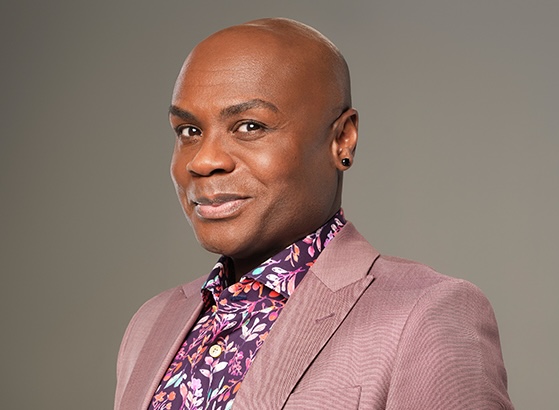
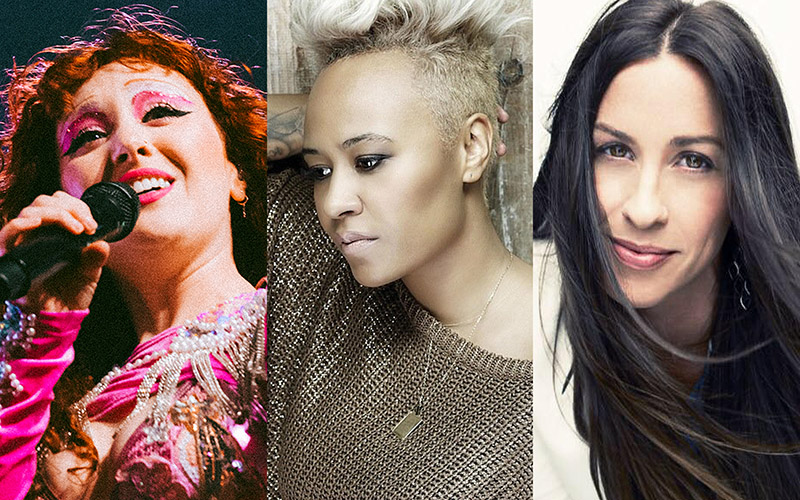














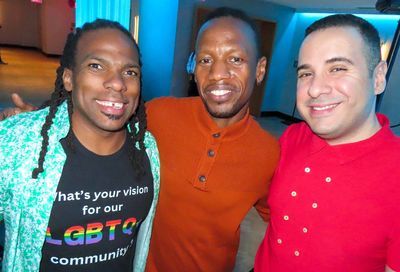
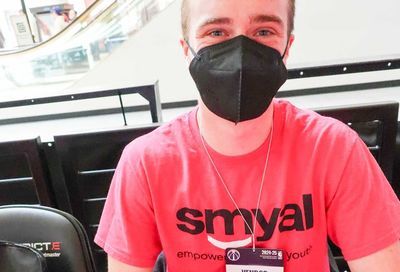
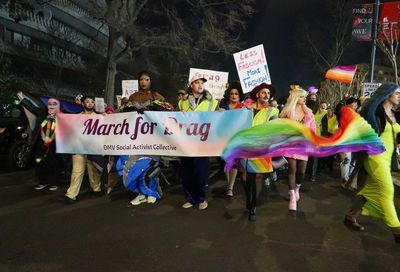
You must be logged in to post a comment.